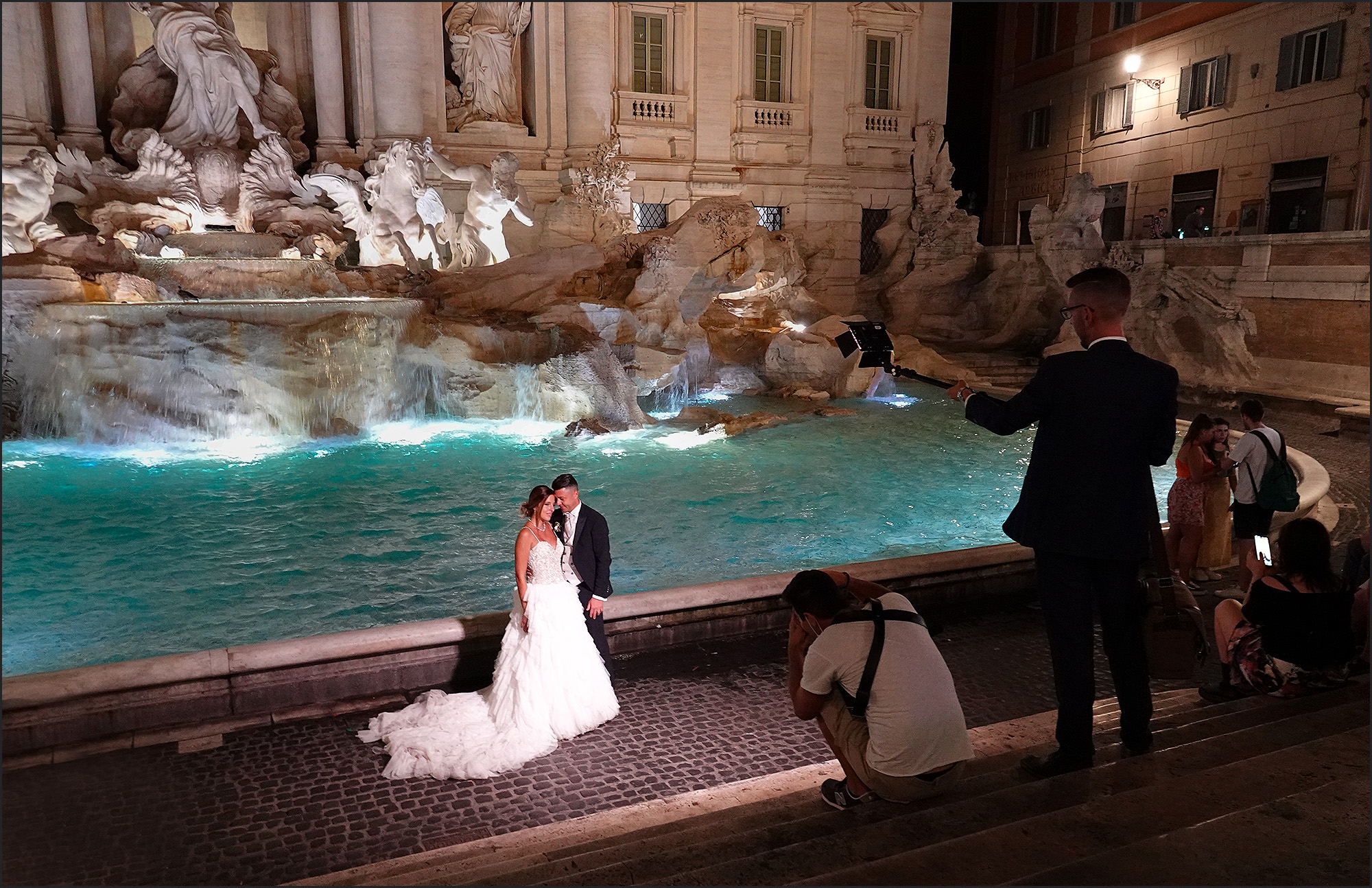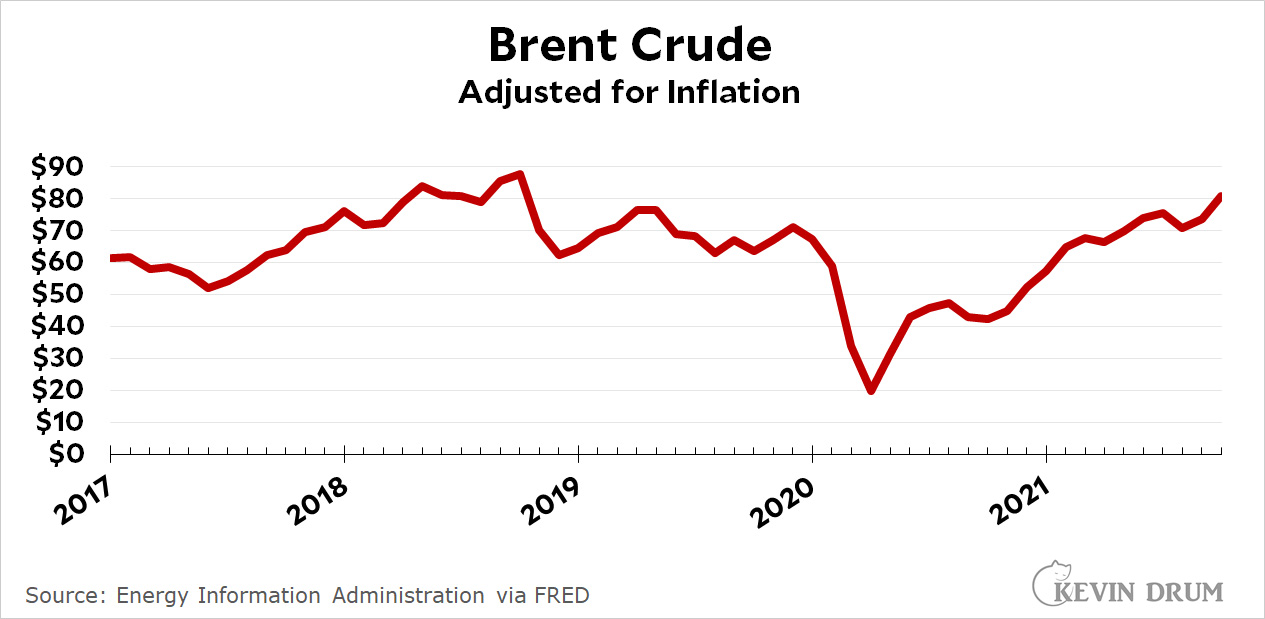I have mentioned a number of times that there's a sizeable bloc of conservatives who believe—really, literally believe—that liberals hate America and are deliberately trying to subvert and cripple it. This level of paranoid delusion, fueled by Fox News and others, is what produces events like the January 6 insurrection. If you truly believed that the country was on the verge of collapse if Democrats governed for a few more years, you might have joined in.
This belief originated in the white evangelical community and mostly centered on social issues like gay marriage, abortion, religious freedom, and so forth. It has since spread beyond the religious community, but the religious ties are still there.
Now, you may or may not believe me about this. I gather that many of you don't, which makes it useful that in the Atlantic this month Emma Green interviewed Ryan Williams, president of the Claremont Institute.
The Claremont Institute used to be a fairly ordinary conservative think tank, but around 2016 or so it went around the bend. It was the source of the infamous essay, "The Flight 93 Election," and was an early supporter of Donald Trump. One of its senior fellows, John Eastman, wrote a brief in early 2021 trying to make the case that Vice President Mike Pence could declare Trump the winner of the 2020 election.
This makes Ryan Williams an interesting source of apocalyptic conservatism. Let's hear him out:
Emma Green: What do you see as the threats to Western civilization?
Ryan Williams: The one we have focused on at the Claremont Institute is the progressive movement....I would say the leading edge of progressivism now is this kind of woke, social-justice anti-racism. It’s a threat to limited government because it seems to take its lead from scholars like Ibram Kendi, [whose] definition of racism is any policy that results in disparate outcomes for different groups....The pursuit of equal results is only going to be successful in a new woke totalitarianism. I realize that sounds a little hyperbolic, but that seems to be the road we’re on.
....Even during the Civil War—I think we’re more divided now than we were then. As Lincoln said, we all prayed to the same God. We all believed in the same Constitution. We just differed over the question of slavery....Most of the Founders of America were Christians. There were radicals, to be sure. But there was much more consensus back then on what human nature is—on monotheism, broadly speaking, but really Christianity as well.
....Green: Do you think America can hang together in 2021 without Christianity at its core?
Williams: I’m ambivalent about that question. I think it would be bad for America if that longtime Christian core disintegrated. The Founders were pretty unanimous, with Washington leading the way, that the Constitution is really only fit for a Christian people.
....Green: Do you feel like there is a hopeful future for America, or do you think we are headed toward some sort of generationally defining conflict that could potentially be violent?
Williams: I worry about such a conflict. The Civil War was terrible. It should be the thing we try to avoid almost at all costs.
Hmmm. "Almost."
Williams is obviously trying to come across as a thinker, not an evangelical hysteric. Nevertheless, he believes that America is on its way to decay and ultimate ruin if progressives remain in charge, pushing their anti-Christian and anti-racist agenda. Presumably Williams means that neither Christians nor white people will put up with this, and a civil war is inevitable if progressives don't change their tune.
How common is this view? I can't say for sure, but I think I can say that it's not especially rare these days among conservatives. It is this kind of view, pushed down to the rank and file by Fox News, evangelical pastors, and the entire conservative media machine, that makes the right wing so dangerous these days: they are desperately afraid of what they think liberals are doing and are increasingly willing to do anything to stop it. They support Donald Trump not in spite of his all-but-open racism and stagey Christianity—which make even many Republicans cringe—but because of it.
And as I mentioned above, if you really believe in this, it makes sense that you would be willing to resort to violence to prevent progressives from running things. This is not normal politics. It is, as Williams says, a belief that Trump's version of conservatism is the only thing standing between modern progressives and the destruction of Western Civilization.








 After a short introduction, Gloria Allred led off the speakers, later accompanied by Paxton Smith, the Texas teenager who switched her graduation speech and spoke about abortion after Gov. Greg Abbot signed a bill that effectively banned abortion in the state:
After a short introduction, Gloria Allred led off the speakers, later accompanied by Paxton Smith, the Texas teenager who switched her graduation speech and spoke about abortion after Gov. Greg Abbot signed a bill that effectively banned abortion in the state: